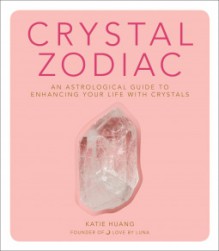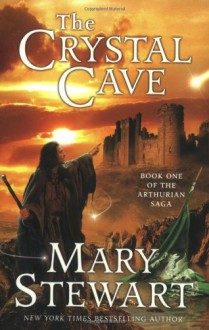
I haven't bothered with these monthly wrap-up posts in recent months because I've got so little reading done and with moving my account, it just got lost in the shuffle.
So anyway, four books finished in June. Only one fiction that I chose to read and it was pretty good. Three non-fiction from Netgalley. I seem to have a backlog of those all of a sudden. Some of them are a bit woo but I do take an interest in all sorts of things.
I'm reading several books at once so I may have more books done by the end of July. I'm still getting back to normal reading after the end of the world in march so I'm just glad to be reading again!

by Katie Huang
This is the first book I've seen that melds crystal healing with astrology. Interestingly, I've recently been reading a book on Ayurvedic medicine and found precedent for this combination there. It starts off with some very basic information about astrology that would be useful to someone totally new to the subject, but already familiar to anyone who has read anything else about astrology.
This is followed by similarly basic information about crystals, but this veered into belief rather than practical instruction and I found it of little use. After a bit of woo, it got to the part I was looking for; segments on astrological placements and which stones would be useful for specific purposes.
It goes through each of the twelve signs, giving an overview followed by small segments about the significance of the Sun, Moon and Ascendant, assigning stones to each, then covers the "personal planets", Venus, Mercury and Mars. The book does not address the outer planets but explains how they are slow moving and tend to affect generations more than individuals.
It gives a few basic spells, mostly based on visualisation and covering basic things like love spells, communication and personal insight. While I found the information a bit light, I did see it as useful and would certainly recommend it to someone new to these subjects and of use to people wanting to expand work with crystals.

by Mary Woldering
Despite the dull cover, this is an interesting story set in Ancient Egypt. It starts out with a village that needs to move, but one member of the tribe who lost his wife has turned to madness and his sister is unsure whether he will go with them.
It's a slow boiler that reads a lot like mythology, so not a fast action read, especially in the beginning. I've taken my time reading it to absorb the beautiful imagery as well as assimilating the story and getting to know the characters. These are all well drawn and distinctive.
There's a supernatural-scifi element layered over a well-researched historical background which I found rather unique. Also uncommon is the story involves common village dwellers rather than the grandeur of the king and queens of Egypt.
A little slow in places, but will appeal to those who like to read old folktales.

by Mary Stewart
With the recent death of Mary Stewart, I decided it was time to read her Merlin trilogy which had been on my radar for a long time. This is the first book which tells the story of Merlin's life from childhood to the point where the future King Arthur is conceived.
First off, the writing is excellent. I was deep in this story in a way that would normally generate 5 stars. The only reason it only got 4 is because towards the end, the artistic licence that an author of Arthurian fiction must necessarily take veered off into a direction I could not rectify historically.
One of the strengths of the story is that it has a lot of genuine historic references so that the tale of Arthur is painted against a backdrop of known facts. Ambrosius did come to England and route the Saxons in the year given; Vortigern and his son Vortimer are actual historic figures. Vortigern did try to build a stronghold in the place depicted, only to have it fall down time after time because of geological anomalies that Engineers of the time didn't understand.
Merlin himself is depicted as a very believable character, with the sole exception of his attitude towards Christianity near the end. I'm not anti-religion or anything, but a near-conversion doesn't work for Merlin. One could argue about the transitions of Paganism to Christianity around that era, but a student of history will know that it's about a thousand years too early in the fifth century for that level of flexibility between the sets of beliefs.
Despite that, I really enjoyed the book and had trouble putting it down. I'm starting the next book in the series next, The Hollow Hills. I'm also going to try some of Mary Stewart's other books, though I don't know when. She's a brilliant writer and I'm sorry that she's gone now.